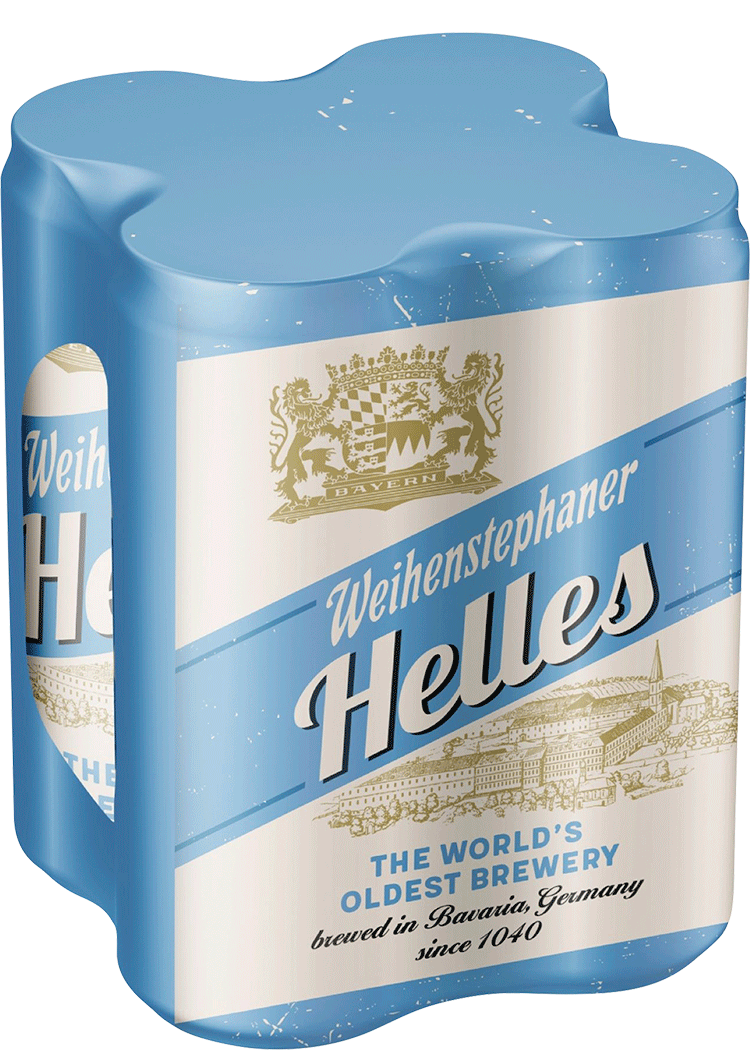tap to enlarge
Weihenstephaner Helles
4pk-16oz Cans
$10.99
+CRV
*Price, vintage and availability may vary by store.
*Price, vintage and availability may vary by store.
Product Highlights
Germany- Munich Helles Lager. This style of beer generally offers a full body featuring balanced flavor and aroma of bready malt sweetness and German hop spice. This style of beer pairs well with light dishes such as salad and shellfish.
Product Details
OVERVIEW
Beer Type
Created at Munich’s Spaten brewery in 1895 to compete against popular Pilsner-style beers, Munich Helles Lager is similar to, but has notable differences from, traditional Pilsner. “Helles” means “bright” in German, and this style pours a clear, bright straw yellow to pale-golden color with a creamy white head. Unlike German Pilsners, this German Lager style is more malt-forward in character, exhibiting bready, toasted grain flavors with only a hint of sweetness. Modest Noble hop aroma and flavor may be present in Munich Helles Lager, but bitterness is low, allowing the beer to finish with a clean, malty note and expressing no fruity yeast esters.
Producer Story
Beer has been brewed on site of Germany’s Bayerische Staatsbrauerei Weihenstephan (the Bavarian State Brewery at Weihenstephan) for approximately 1,000 years, so Weihenstephan has a good claim on being the oldest brewery in the world. It began as a monastery brewery, duly recorded when the abbot received a license from the city of Freising to brew and sell beer in 1040. It was the beginning of a long brewing legacy amid challenges that spanned centuries.
Between 1085 and 1463, the Weihenstephan monastery burned down completely four times and was destroyed or depopulated by three plagues, various famines and an earthquake. Each time, the monks rebuilt the monastery and brewery and continued to refine their brewing art. What these natural disasters could not take away, the state of Bavaria did in 1803 when, in a wave of secularization, it dissolved the monastery and repurposed its buildings. The brewery, however, remained, operating under state supervision.
In 1852, Bavaria’s Central Agricultural School and its brewing students moved to Weihenstephan. The school became the University of Agriculture and Brewing in 1919 and then the Bavarian State Brewery at Weihenstephan two years later. By 1930, it was incorporated with the Technical University of Munich and became the center of world brewing technology.
Despite Weihenstephan’s likely status as the world’s oldest brewery, it is also one of the most modern, with a unique combination of tradition and state-of-the-art science contributing to its top-quality brews. Weihenstephaner beers include Weihenstephaner Original (Munich Helles Lager), Korbinian (Doppelbock), Kristall Weissbier, Hefe Weissbier, Hefe Weissbier Dark and Vitus.
Source: Brauerei Weihenstephan
